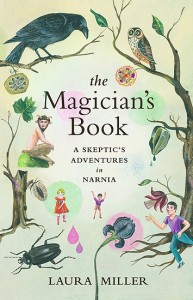 It’s been a long time since I sat down and read straight through most of a book in one sitting, but I did that with ‘The Magician’s Book.’ It combines two things I’ve always loved — Narnia and literary criticism — and if parts of it weren’t new to me, that was just a reminder that I loved these things enough to have read many of the same sources used in this book.
It’s been a long time since I sat down and read straight through most of a book in one sitting, but I did that with ‘The Magician’s Book.’ It combines two things I’ve always loved — Narnia and literary criticism — and if parts of it weren’t new to me, that was just a reminder that I loved these things enough to have read many of the same sources used in this book.
The book’s three-part structure works well; the first section, ‘Songs of Innocence,’ about how Narnia appears to the initial reader; the second, ‘Trouble in Paradise,’ which details the problems with Narnia, and the third ‘Songs of Experience,’ which tries to get back to the initial enjoyment by analyzing what it is that makes Narnia so much more than the simple religious allegory so many of its enthusiasts apparently wish it was.
In the first section, Ms. Miller gives a vivid recounting of her own initial response to Narnia, supplemented by insights from many prominent fantasy authors. These are tantalizing enough to make me wish for a companion volume of the full interviews. I think almost any reader who buys this book will recognize the feelings and dreams that even a short quote from one of the books can call up. Where does the astounding power of the Narnia books come from?
Section 2 of the book reminds us where that power doesn’t come from. It doesn’t come from the christian allegory, or the reactionary tastes, reflexive sexism and racism, etc. of its author. This was the section of the book that interested me least, because I had either read or picked up on all of this before; but I can see how it might be a breath of fresh air for someone whose main experience of Narnia criticism has been apologetics and hagiography. I can remember how excited I was when I found in Lewis’ letters an explanation for his fondness for a dominating god, and this book is certainly a far clearer, easier, and more direct path to that explanation. And without clearly laying out the series’ flaws, the third section which tries to come to grips with its magic could have seemed naive.
In the third section, however, I found myself impatient. Too many of the leads seemed to be leading away from Narnia; particularly the digressions into Tolkieniana. I would have liked more about what Lewis believed and less about why Tolkien didn’t believe it, and I’m not convinced that what Tolkien thought had much to do with the creation of Narnia, beyond his role in re-converting Lewis to Christianity. Perhaps I should accept that Tolkien is the black hole of fantasy scholarship, and will suck in anything that comes too close. But the only thing I wanted to know about Tolkien was what makes parts of his books work so well. Basically, I wanted to learn about the psychology of the readers, not of the writers.
The book escapes Tolkien’s gravitational pull in the last chapters, where the ‘Third path’ of faerie is identified as the way Lewis escapes the moral straitjacket of his own allegory, breaking into a land untouched by its constraints. It’s clear, once it’s pointed out to me, that Lewis’s pack-rat like accumulation of fantasy concepts and images gives his work much of the punch it has for anyone who already knows those images.
All the time I was reading the last few chapters, whenever the agglomeration of disparate mythologies in Narnia was invoked, I was thinking about fan fiction. Most authors I’ve discussed fan fiction with have agreed that it’s easier than regular fiction because the emotional associations have already been created for you. The reader knows just what you are trying to do when you introduce Snape or Spock into a story – you call up levels of meaning that you could never have created on your own. And if you’re bold enough to introduce both of them, having them meet Tohru Honda and Toad of Toad Hall — then you’re playing with a lot of free power, and you can potentially accomplish a lot.
And now that I’ve been shown some of the secrets of Lewis’ power, I want more — more detail, more line-by-line identification of the symbols and myths Lewis uses and why they have the effect they do. I want more of the reasons for their impact on children, specifically, and how they arise from and call to the embodied experience of the child. In short, I want another book — one that picks up where this one leaves off, going into Narnia by the back door.
When will the next one be issued?

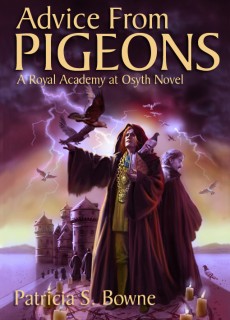
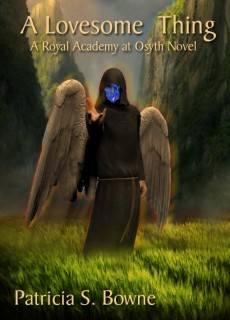
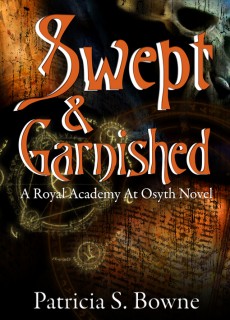
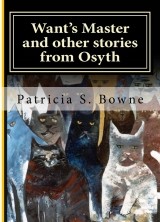
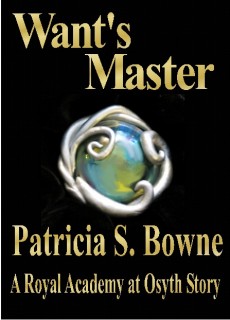
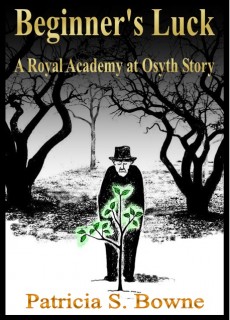
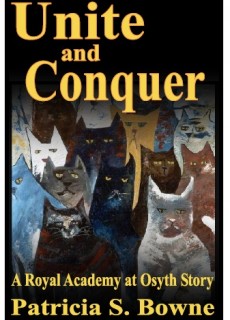
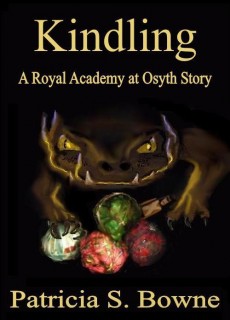
Not having read the book in question I can’t comment on that directly; I know that my experience of Narnia was immensely different from that of many people because I was quite utterly unaware of the Christian component in the books, and so they were simply to me mashups of fairy tales with Greek mythology and a neat little crossover mechanic (with one really annoying aspect). But one point of this article did ring a little bell with me:
As a fic writer I think fanfic is not easier, or at least not SIMPLY easier. It’s also much HARDER than writing your own. In my own fiction I can just do whatever the hell I want to; in fanfic, I have a lot of constraints that must be satisfied.
I am of course speaking of GOOD fanfic — material that takes into account the original, not wankfic in which only the appearance of the originals is preserved, or changefic in which the only purpose is to rewrite the entire story because you wish it had been a completely different thing. A good fanfic extends, builds upon, or answers questions introduced by the original, or takes the original components and does something interesting with them in a new context.
While it’s easy on one hand to do this, it’s infinitely harder in another. Even well-known universes have a huge number of unanswered questions which the author would know, or perhaps merely SENSE, the answers to, but you as an outsider don’t, and thus have to create or derive those answers for yourself. And those answers may not accord, not just with the real author, but with those assumed or created by the legions of other fans. It is of course a truism that if you give three authors the same idea, they’ll end up with three utterly different books, but for many fans — and even many fic writers — it can be very jarring to find that someone else took the same starting point, with putatively the same characters and same basis, and took off at right angles to what seems utterly obviously right and proper.
No one can come over and tell me that I got my characterization of Ariane Austin wrong in Grand Central Arena; on the other hand, there’s an almost infinite number ready to tell me authoritatively that I messed up in my portrayal of Hermione if I write “Harry Potter and the One Ring”.
You’re right, of course. Stuff I write in my own world can’t be criticized for unfaithfulness to the canon half as easily as a fanfic is. But if I want to get the reader caught up in the angst of my tragic hero, I have to first establish him as a tragic hero and make him sympathetic enough for the reader to care, etc. etc.; whereas in a fanfic, I just have to introduce Mr. Spock and give one little scene in which he can’t return Nurse Chapel’s love, and the reader’s memories of the TV show will do all the setup for me.
I’m not a bonafide fan; I rarely even consider whether a fanfic is true to the canon, or well-written. I’m interested in its effect on the reader, and how that effect was achieved. A fanfic that makes me cry over the hero’s death, no matter how otherwise inauthentic it is, interests me more than an acclaimed novel that makes me say ‘Hm, interesting,’ about the same events.
While to me, a fanfic that pays no attention to the canon — even if it intends to extend, change, or build upon it in a different direction — is not a fanfic worth reading. If you can’t actually USE the stuff you’re putatively showing me, why are you calling it “Harry Potter and the XXX of YYY” instead of “Young Angsty Wizard at a Different School”? (answer: because — and this is highly relevant to your later post about indexing — if you post “Young Angsty Wizard” no one on Earth will ever read it except you, but if you put “Harry Potter” on it, ten thousand will read it).
I don’t have anything against experimenting with canon, or adding to it, or even choosing which canon you like to use (in some series, you haven’t got an alternative — it contradicts itself and you HAVE to pick and choose); I do have a strong objection to saying “I’m writing a Star Wars fanfic” and turning Luke Skywalker into womanizing James Bond without explanation.
My wife and I wrote several novel-length fanfics in the Saint Seiya and Samurai Troopers universes, and some others; and while the characters developed and changed a great deal, we respected the original canon (as much as we understood it at the time, anyway) and could show easily how everything developed FROM that canon. (In the case of Saint Seiya, I think we respected the original more than its original writer did, but hey, if it’s good enough for George Lucas I guess it’s good enough for Kurumada, too).